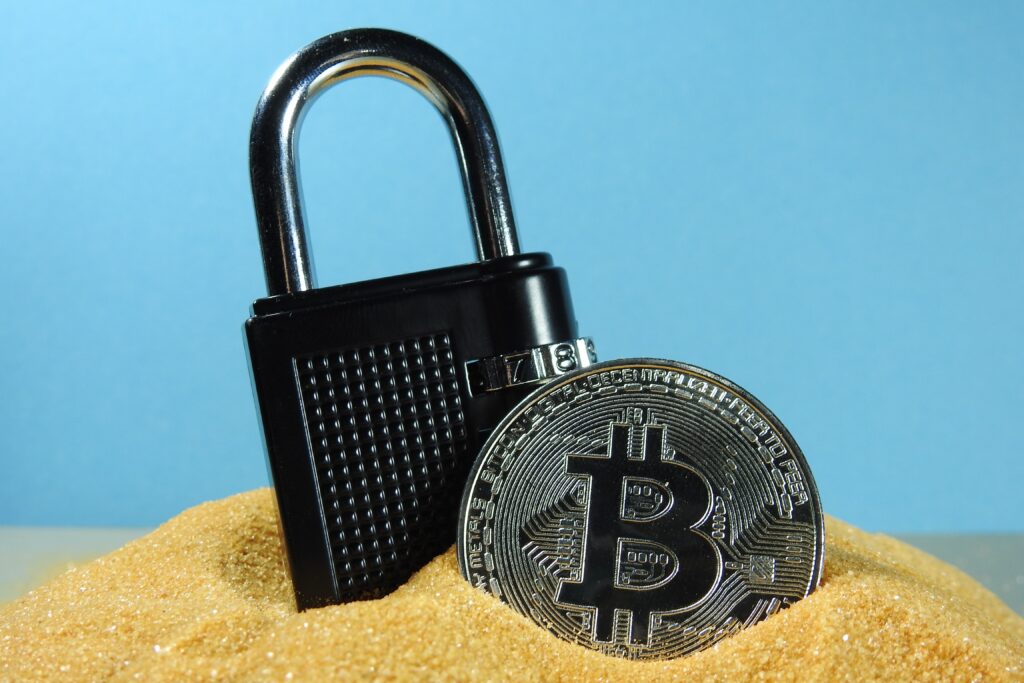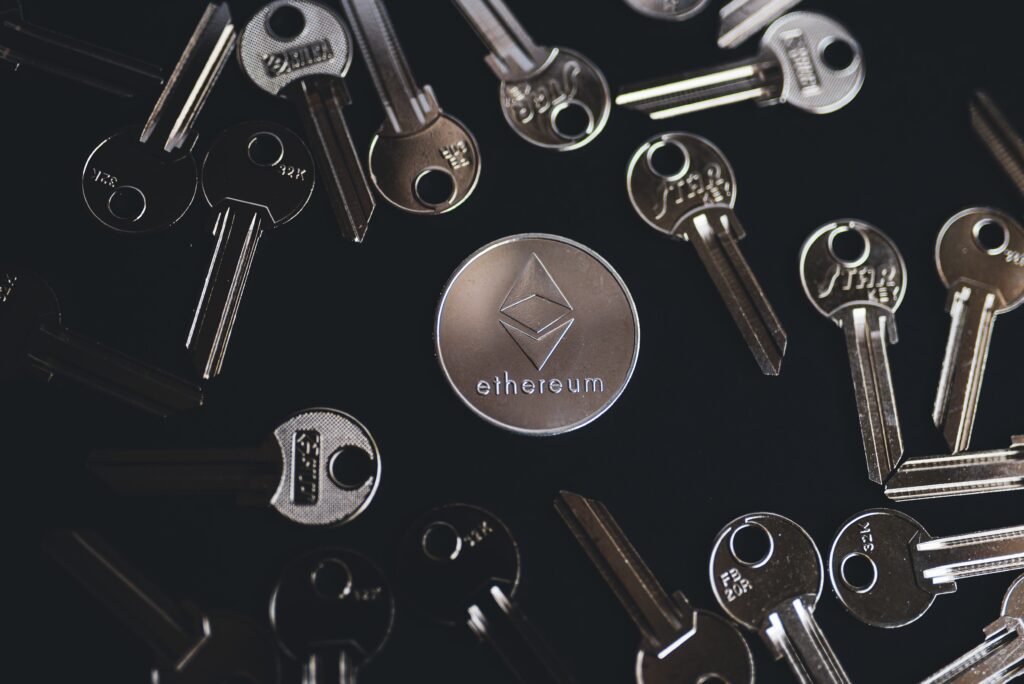If you’re buying cryptocurrency, you’ll want to keep it safe and accessible. Here are five things you need to know about crypto wallets.

1. What is a crypto wallet
If you want to trade, buy and sell cryptocurrencies or blockchain-based applications, you need a crypto wallet. It allows you to store and transfer your funds with complete security because they are cryptographically safeguarded. Traders need them to store crypto securely, as well as to protect and validate transaction information.
To make it simple, let’s look at how FERGUS O’SULLIVAN has described crypto wallet in his article on howtogeek.com.
A crypto wallet is nothing like your regular, real-life wallet. Right now, you could probably reach for your wallet, open it up and either take out physical money or put some back in—or at least some kind of payment card. A wallet doesn't protect your money in any way, except maybe from the weather or getting lost in your bag.
A crypto wallet is a different beast entirely. A crypto wallet is more or less your identity when you buy Bitcoin or any other cryptocurrency: its address is how your buying and selling is recorded on the blockchain (and also the reason these currencies aren't anonymous)
To store your cryptocurrency, you can use a variety of wallets. The simplest option is to keep it on the crypto exchange where you purchased it. Called a hosted wallet, they allow you to buy and sell. Some of the most popular Indian crypto wallets include WazirX, Coinbase, and CoinDCX. The wallets are anonymous and may be accessed from a computer, mobile device, or laptop. These wallets allow you to buy, sell, and manage your cryptocurrency directly on their site.
However, you can’t access more advanced crypto activities like yield farming, staking, lending, borrowing, and more with this wallet.
2. Why is a crypto wallet with a private key important?
You must note that the wallet that crypto exchanges offer does not have a private key.

So, if we go by Elon Mask’s advice, a private key is vital, and therefore having a crypto wallet is an absolute must.
With the crypto wallet, one can manage all your digital assets in one secure place, receive and send cryptocurrency to and from anywhere in the world, have your own private keys, browse dapps (decentralized finance apps), and at any store that accepts cryptocurrency.
3. How does a Crypto wallet work
A simplified version of how Crypto wallet works as explained by the online edition of cnbctv18:
Crypto wallets work by storing two keys—public and private—for all crypto assets.
When you register with a crypto exchange, a wallet gets created with two keys – a public key and a private key. Think of the public key as your phone number; people need it to reach you. When somebody sends you crypto assets, the ownership gets transferred to your wallet's public key.
The private key, on the other hand, is similar to your password and should never be revealed. The private key, which is a long string of numbers and letters allocated to your wallet, is similar to a password; if you want your money to be safe, you must keep the private key safe. To transfer crypto-assets to another entity, you'll need the private key. To authorize the transfer of funds from your wallet to another wallet, your private key must match the public wallet address. The transaction is activated only when the public and private keys match. If somebody is sending you crypto assets, the balance in your wallet increases (credit), and the sender's balance reduces (debit).
4. What is a private key?
The private key is everything. Literally everything. One might think if it is a password to keep your wallet safe, what’s so big deal about it? We have a password for everything – laptop, email accounts, net banking, etc. Well, in that case, you might recall the story of Stefan Thomas, a bitcoin millionaire that was widely covered in media in early 2021. Thomas’s holdings were worth $220 million US, but he could not retrieve them.
To help you understand why he could not retrieve it, let me give you an example. This isn’t the best analogy; it might help beginners. Think of a conventional storage cabinet that has a digital lock. After you put your valuables, you lock them with a passcode. To open it, you need to remember the password. If you forget the password, there’s no way to retrieve it (unless you have written it on a piece of paper or shared it with another person). The ‘forgot your password’ option isn’t available here for this physical asset.
In the case of a crypto wallet, you have a private key comprised of 12 words. To access your wallet, you need to type the words in the same order. And if you, by chance, forgot it, you have no ways to retrieve it and may lose all your cryptocurrencies and other assets stored inside it. In the case of a conventional cabinet, you may still break it to recover your valuables, but the crypto wallet does not give that option.

Read an excerpt of a conversation with Stefan Thomas with CBC.ca, the English-language online service of the Canadian Broadcasting Corporation:
CBC: OK, this happens, right? We all know we lose our passwords. And so a little thing comes up when we're going to our bank or whatever [that says], "Did you forget your password?" And then you push it and then you go through a business of changing your password. So that's not available to you?
Stefan Thomas: No. Bitcoin is a decentralized system. And so if you hold your bitcoins, like I did, in a completely independent wallet — so not with an exchange, not with a bank, not with any kind of institution, but yourself — then it's just like cash. It's like gold. If you lose it, you lose it. There's no recovery process for that.
Since then, a lot of people have come up with all kinds of clever solutions like, you know, metal wallets where you can put down your secret keys and things like that. But most of that didn't exist back then. Back then, you had to kind of come up with your own solution. And apparently I didn't do a very good job of that.
I tried everything. I would stay up all night trying different ideas for how to recover it, or just, like, staring at the ceiling for hours.
CBC: We know that this has been a very good year for bitcoin. How many people do you think are not able to access their fortunes?
Stefan Thomas: In The New York Times article about this, they had an estimate, which was something like [$140 billion US ($178,258,500 Cdn) is] locked up in these wallets. And so you can imagine it's probably hundreds of thousands, if not millions of people, who are in my situation.
According to the cryptocurrency data firm Chainalysis, 20 percent of all the bitcoin accounts are owned by people who can’t access them. So are you convinced that private key is a big deal?
5. Types of Crypto wallets
There are different kinds of crypto wallets available. The essential element to consider when choosing a crypto wallet is the wallet’s security. However, before determining which storage solution to utilize, consider how you intend to use the wallet. A hardware wallet is undoubtedly your best option if you want to acquire and hold your investment for a long time.
Simplilearn classifies them as below:
i. Software wallets;
ii. Hardware wallets, which you plug into your USB drive; and
iii. Typical paper-based wallets, for which you print your public key and private key on a piece of paper and keep it in a secure place.
Software Wallets
A software wallet is an application that is downloaded on a device; it could be a desktop or a mobile device, or it could be a web-based wallet that can be accessed online. Breadwallet, Jaxx, and Copay are popular software wallets. We can further categorize software wallets as desktop wallets, online wallets (web wallets), and mobile wallets.
Hardware Wallets
A hardware wallet is a type of cold storage device, typically like a USB, that stores the user's private key in a protected hardware device. These wallets are similar to portable devices that can be connected to the computer (plugged in). As noted earlier, they are less prone to malicious attacks and are hack-proof. Ledger, Trezor, and KeepKey are the top hardware wallets on the market.
To make a transaction from your hardware wallet, you have to ensure that the hardware wallet is plugged into your computer system.
Paper Wallets
A paper wallet is an offline process for storing cryptocurrencies. This wallet is a printed paper that has both your private key and public key, which are accessed using a QR code. Since these wallets are safe, they are widely used for storing large amounts of cryptocurrencies. Bitcoin Paper Wallet and MyEtherWallet are two widely used paper wallets.
A paper wallet works with your software wallet to transfer funds from your software wallet to the public address shown on your paper wallet. First, you park your funds in a software wallet, and then you transfer the funds from your software wallet to the public address printed on the paper wallet.
Conclusion
A Crypto wallet with a private key is the most secure way to store and perform transactions. While trading or making crypto transactions, it is advised to use only a secure internet connection and avoid public Wi-Fi networks. Using a VPN could be a better option for additional security. Since there is no limitation for wallet creation and generally the cost isn’t so high, one can diversify cryptocurrency investments in multiple wallets.
